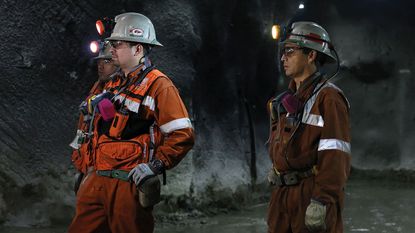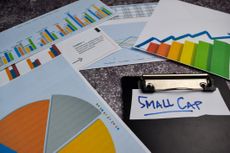How the commodities supercycle will foment unrest around the world
Commodities, including metals, energy and agricultural goods have seen prices climb steadily. With many societies are already on edge, we could see a new round of social unrest around the world.

Are we in a new commodity supercycle? asks The Economist. Many raw materials enjoyed strong gains last year, with copper prices up by more than 25% since the start of 2020 and iron ore surging by 75%. China responded to Covid-19 with an infrastructure-led stimulus plan that turned the country into a “voracious importer” of industrial metals and food.
As demand spiked, supply contracted; Covid-19 disruption meant Chilean copper mines and Brazilian iron ore excavators were unable to operate at full capacity. Even energy prices are perking up now: a cold winter has sent Asian liquefied natural gas prices to a record high. Bank of America analysts think the trend will continue, notes Zero Hedge. It says that a cocktail of stimulus, reflation and economic reopening should ensure continued robust commodity demand. Copper could end the year at $9,500 a tonne, up from $7,973 now.
Surging food prices are “one of the most dangerous features” of the latest commodity surge, says Albert Edwards of Société Générale in a note. Grain prices have risen more than 50% in just six months. Droughts in South America have worsened the shortages. As in 2011, a central bank “fire-hose” of monetary stimulus appears to be pumping up agricultural markets. The world’s poor might be about to fall victim to a “price momentum” bubble in basic foodstuffs as speculators pile in again.
Subscribe to MoneyWeek
Subscribe to MoneyWeek today and get your first six magazine issues absolutely FREE

Sign up to Money Morning
Don't miss the latest investment and personal finances news, market analysis, plus money-saving tips with our free twice-daily newsletter
Don't miss the latest investment and personal finances news, market analysis, plus money-saving tips with our free twice-daily newsletter
Soya bean and rice prices have also taken off, says Eoin Treacy on fullertreacymoney.com. Corn futures have hit a seven-year high. The 2011 Arab Spring was sparked in large part by “the high cost of bread in Tunisia” during the last major agricultural price surge. Societies are already on edge. Now rising food prices could herald a new round of social unrest.
-
 Barclays warns of significant rise in social media investment scams
Barclays warns of significant rise in social media investment scamsInvestment scam victims are losing an average £14k, with 61% of those falling for one over social media. Here's how to spot one and keep your money safe
By Oojal Dhanjal Published
-
 Over a thousand savings accounts now offer inflation-busting rates – how long will they stick around?
Over a thousand savings accounts now offer inflation-busting rates – how long will they stick around?The rate of UK inflation slowed again in March, boosting the opportunity for savers to earn real returns on cash in the bank. But you will need to act fast to secure the best deals.
By Katie Williams Published
-
 The industry at the heart of global technology
The industry at the heart of global technologyThe semiconductor industry powers key trends such as artificial intelligence, says Rupert Hargreaves
By Rupert Hargreaves Published
-
 Three emerging Asian markets to invest in
Three emerging Asian markets to invest inProfessional investor Chetan Sehgal of Templeton Emerging Markets Investment Trust tells us where he’d put his money
By Chetan Sehgal Published
-
 What to consider before investing in small-cap indexes
What to consider before investing in small-cap indexesSmall-cap index trackers show why your choice of benchmark can make a large difference to long-term returns
By Cris Sholto Heaton Published
-
 Why space investments are the way to go for investors
Why space investments are the way to go for investorsSpace investments will change our world beyond recognition, UK investors should take note
By Merryn Somerset Webb Published
-
 Time to tap into Africa’s mobile money boom
Time to tap into Africa’s mobile money boomFavourable demographics have put Africa on the path to growth when it comes to mobile money and digital banking
By Rupert Hargreaves Published
-
 M&S is back in fashion: but how long can this success last?
M&S is back in fashion: but how long can this success last?M&S has exceeded expectations in the past few years, but can it keep up the momentum?
By Rupert Hargreaves Published
-
 The end of China’s boom
The end of China’s boomLike the US, China too got fat on fake money. Now, China's doom is not far away.
By Bill Bonner Published
-
 Magic mushrooms — an investment boom or doom?
Magic mushrooms — an investment boom or doom?Investing in these promising medical developments might see you embark on the trip of a lifetime.
By Bruce Packard Published